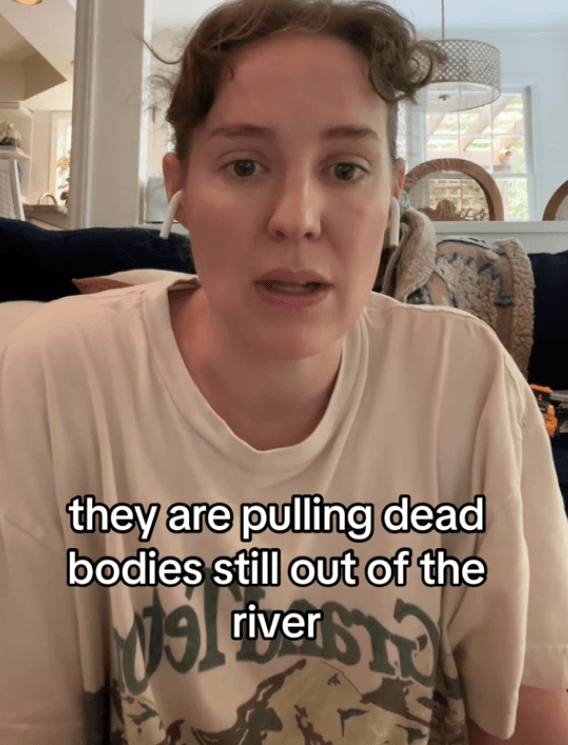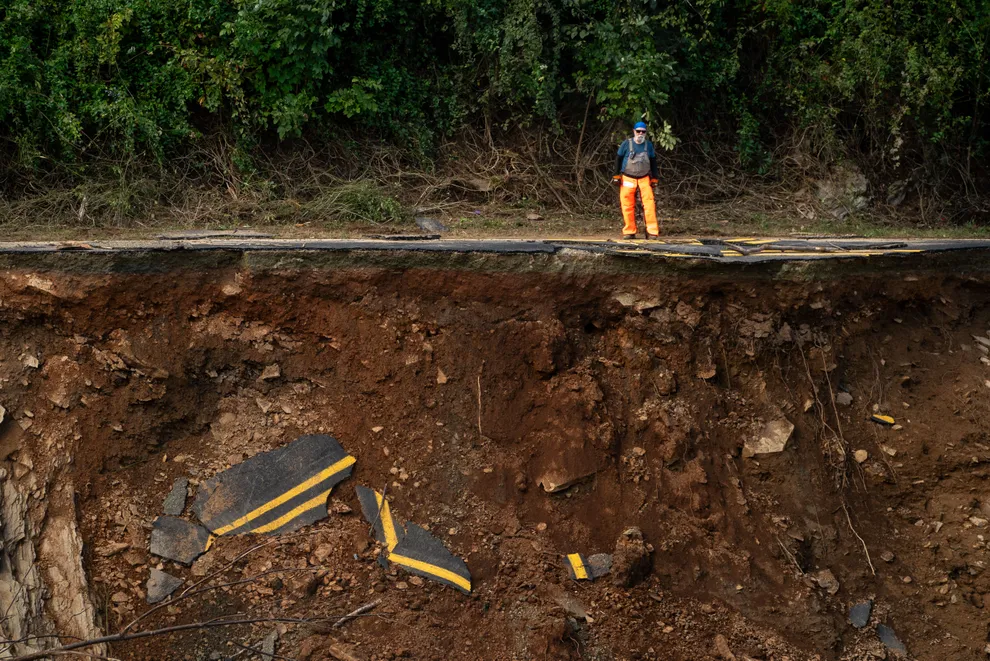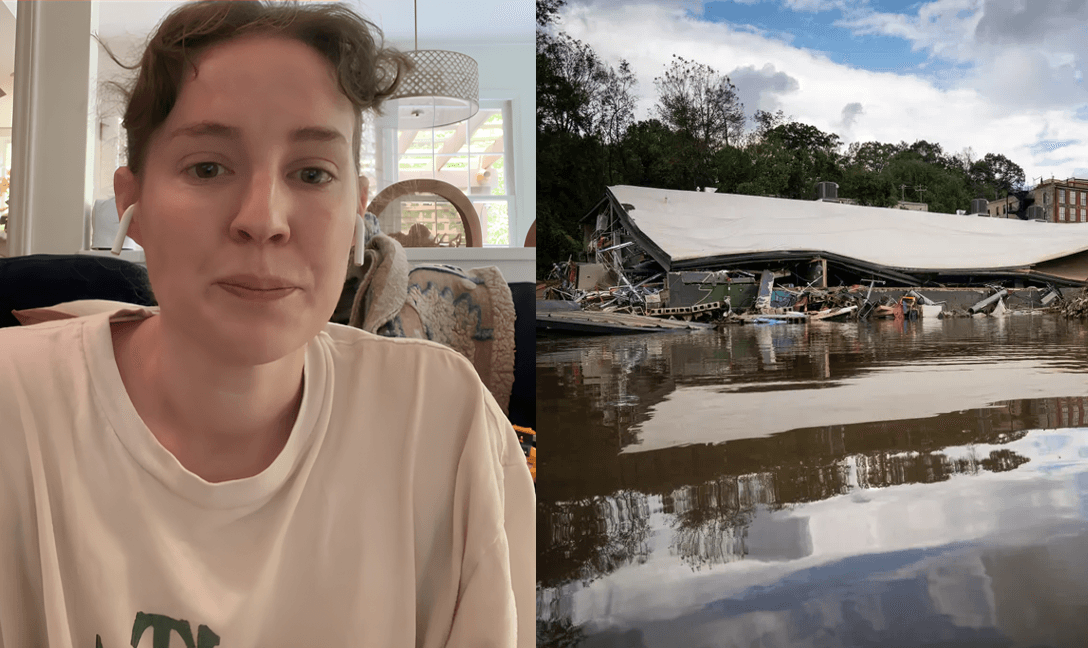The recent destruction caused by Hurricane Helene has left many in Western North Carolina grappling with an unprecedented humanitarian crisis. One voice in particular has brought attention to the scope of the disaster – Rebekah MacNair, a North Carolina nurse from Asheville.
Her firsthand testimony paints a harrowing picture of the aftermath, where entire communities have been swept away and relief efforts are still in their infancy.
North Carolina Nurse Rebekah MacNair’s heartbreaking testimony


In a TikTok video, Rebekah MacNair, a board-certified psychiatric mental health nurse practitioner, shared her personal experience of the devastation.
“I’m talking to people at the Yancey County Fire Department,” MacNair began, emphasizing that the information she was providing was firsthand and current.
“There are four refrigerated trucks full of bodies,” she revealed, explaining that the total death toll remains uncertain. The scale of the disaster is overwhelming, and small, rural fire departments have been forced to lead the recovery efforts.
Firefighters “are still pulling bodies out of the river,” MacNair described. One of the most chilling details she shared was the discovery of five bodies in the New Deal area, while another was found on Claremont School Road.
“It looks like an atomic bomb went off,” she noted, underscoring the surreal level of destruction in the region.
The Challenges of Recovery in Western North Carolina
The aftermath of Hurricane Helene has left western North Carolina in shambles, with entire towns buried under mudslides and rivers swollen beyond their banks. MacNair’s testimony underscores the grim reality facing many families.
“There’s no place for these people to live,” she explained, referring to the fact that temporary shelters cannot be built on hillsides that are either covered in mud or prone to sinkholes.
“The bank has a sinkhole in the parking lot,” she added, illustrating the extent of the damage.
Many families lived in trailers before the storm – homes that are now completely gone. Dozens and dozens of families have lost everything, and the children who survived are emerging from the wreckage disoriented and frightened.
“Kids are coming out of brush piles and creek beds and saying, ‘Where’s my mom and dad?'” MacNair recounted.
The emotional toll is immense, and countless families are still searching for loved ones amid the chaos.
Ongoing dangers and search efforts
Despite the immediate destruction, the danger is far from over. “Yesterday, 10 people were rescued from the side of a mountain,” MacNair reported. However, shortly after the rescue, the mountain collapsed in a massive mudslide, a stark reminder of the ongoing risks facing rescuers and survivors. Mudslides remain active throughout the region, making search and rescue efforts increasingly dangerous.
MacNair emphasized that Western North Carolina is “one of the coldest areas” in the state, and as temperatures drop, the urgency of rescue efforts will only increase. Many communities lacked basic resources even before the storm, making the current crisis even more devastating.
“This community didn’t have resources before,” she said, explaining that many people in the area were already living in difficult conditions.
A devastating loss of life

The grim reality is that the death toll from Hurricane Helene continues to rise. “We don’t have numbers on the total loss of life,” MacNair admitted, citing the ongoing effort to recover bodies from the rubble.
According to the latest reports, more than 215 people have died as a result of the storm, with many more still unaccounted for. The death toll from Helene is particularly high in North Carolina, where officials are struggling to cope with the sheer scale of the disaster.
More Like This: FEMA Out of Money: Florida Attorney General Criticizes Mayorkas and Biden Administration
Federal, state and local authorities are working around the clock to provide aid to the hardest-hit areas, but the recovery process is expected to be long and arduous.
MacNair’s testimony serves as a stark reminder of the massive humanitarian disaster unfolding in western North Carolina. Her on-the-ground experience provides a harrowing glimpse into the reality of post-hurricane life, where entire communities have been destroyed and the full extent of the devastation is still unknown.
As relief efforts ramp up, the need for volunteer support and emergency resources remains overwhelming. The region will require sustained relief efforts and national attention to recover from the catastrophic damage caused by Hurricane Helene.
The purpose of this article is to highlight the critical situation in Western North Carolina and the courageous work of those bringing attention to the ongoing humanitarian crisis caused by Hurricane Helene.








